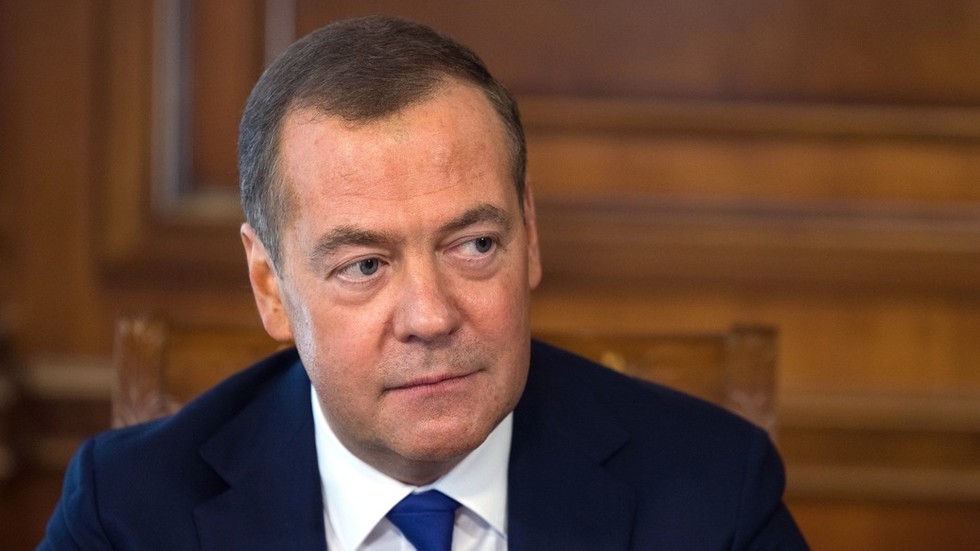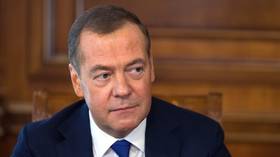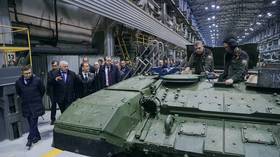
Washington’s purported superiority is meaningless as there would be no winner in an actual war, the former Russian president said

Dmitry Medvedev © Sputnik / Ekaterina Shtukina
Comparing the strength of the Russian and American militaries is pointless because any serious conflict involving the world’s leading nuclear powers would “obviously” have no winner, former Russian president Dmitry Medvedev has said.
The consequences of a nuclear war would be “monstrous” and make it “impossible to say which army was the first and which second,” the senior official told the Russian media this week.
The prowess of a military force is measured by the outcomes of its campaigns, added Medvedev, who is now the deputy chair of Russia’s National Security Council.
“The American army, in my opinion, would be considered the first [in the world] at the very least during the period of time when it actually fought on the ground,” he stated.
This was the case during the Vietnam War, he claimed, but added that the conflict itself was not just and involved “killings of Vietnamese people who had nothing to do with the conflict,” for which the US was never held accountable.

Read more
Russia’s military action in Ukraine is different, Medvedev claimed, because “we are fighting for our people on our land.” Moscow’s true opponent is not “the semi-Nazi or Nazi regime in Kiev,” but rather NATO, with 3.6 million troops and an economy fueled by a population of 800 million, which “provides vehicles, weapons and money” to Kiev.
“They are certainly involved in this hybrid conflict and are not even hiding it,” the former president said.
Russia’s goal is to ensure its security, Medvedev explained. He envisions a demilitarized “sanitary cordon” along the Russian border some 70km to 100km deep, which would ensure that Ukraine cannot attack its territory. Moscow is prepared to push forward for as long as necessary, he warned.
“If we have to get to Kiev, we will. If we have to get to Lviv, so be it. Anything to eliminate this plague,” he declared.
Medvedev declined to estimate how long the campaign could take, saying it was not his place to outline a timeframe.




